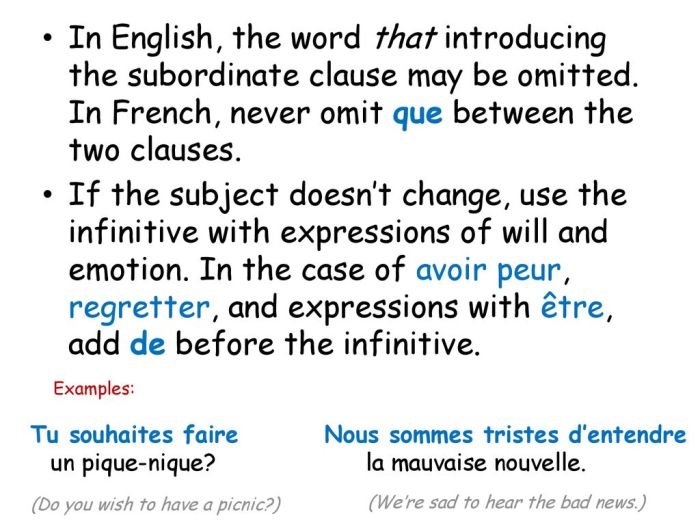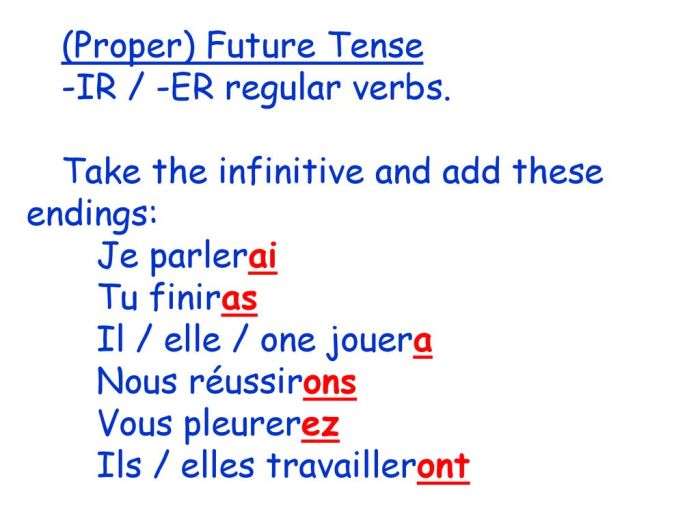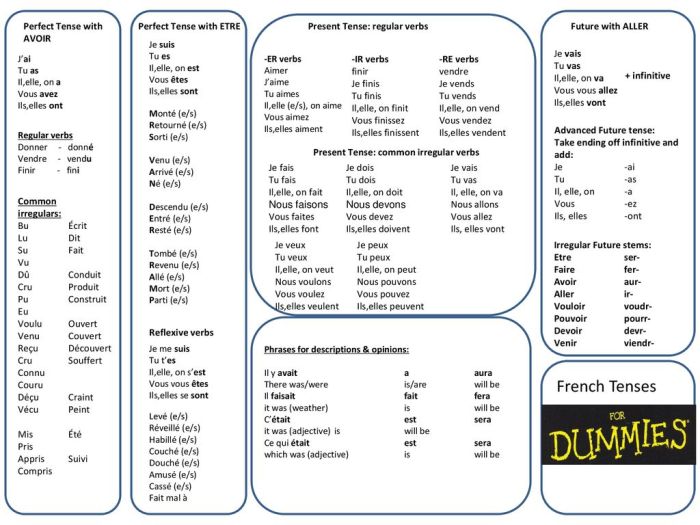Infinitive of suis and sommes – Welcome to the realm of Latin infinitives, where suis and sommes stand tall. Dive into the depths of their etymology, conjugation, and grammatical functions, and prepare to expand your linguistic horizons.
From their Latin roots to their usage in classical texts, we’ll explore the fascinating journey of these infinitives. Their conjugation patterns, irregularities, and special rules will be laid bare, unlocking the secrets of their usage.
Etymology of Suis and Sommes: Infinitive Of Suis And Sommes

The infinitives “suis” and “sommes” in French are derived from the Latin verb “esse,” meaning “to be.” Over time, the Latin infinitive “esse” underwent several phonetic changes, resulting in the modern French forms.
Latin Origin
In classical Latin, the infinitive “esse” was used to express the concept of “being” or “existing.” It was a regular verb belonging to the third conjugation, and its principal parts were “sum, esse, fui, futurus.” The infinitive “esse” was often used in conjunction with other verbs to form compound tenses, such as the future tense (“sum futurus”) and the perfect tense (“sum fui”).
Historical Evolution
During the Vulgar Latin period (approximately 3rd to 6th centuries CE), the infinitive “esse” began to undergo a series of sound changes. The initial “e” sound gradually weakened and eventually disappeared, leaving behind the form “sere.” This form was then further reduced to “ser,” which is the direct ancestor of the modern French “suis.”In
the case of “sommes,” the evolution was slightly different. The Vulgar Latin form “sumus” (first-person plural present indicative of “esse”) underwent a similar sound change, losing the initial “e” and becoming “sumus.” This form was then borrowed into Old French as “sommes,” which has remained the standard first-person plural present indicative form of the verb “être” (to be) to this day.
Examples in Classical Latin Texts
The infinitive “esse” was commonly used in classical Latin literature. Here are a few examples:
“Esse quam videri bonus malebat” (Cicero, De Officiis)
“He preferred to be good rather than to seem good.”
“Summum bonum est esse cum Deo” (Seneca, Epistulae Morales)
“The highest good is to be with God.”
“Esse oportet ut vivas, non vivere ut edas” (Cicero, De Finibus Bonorum et Malorum)
The infinitive of “suis” and “sommes” is “être.” This verb means “to be” and is used in many different contexts. For example, you can use “être” to describe your current state of being, such as “Je suis heureux” (I am happy).
You can also use “être” to talk about your past or future state of being, such as “J’ai été malade” (I was sick) or “Je serai riche” (I will be rich). To learn more about the infinitive of “suis” and “sommes,” check out this atomic dating game answer key .
“You must exist in order to live, not live in order to eat.”
Conjugation of Suis and Sommes

The verbs suisand sommesare used in French to express the state of being or existence. They are irregular verbs, meaning that their conjugation does not follow the typical patterns of regular verbs.
The following table Artikels the full conjugation of suisand sommesin all tenses and moods:
| Tense/Mood | Suis | Sommes |
|---|---|---|
| Present Indicative | suis | sommes |
| Imperfect Indicative | étais | étions |
| Simple Past (Passé Composé) | fus | fûmes |
| Present Subjunctive | sois | soyons |
| Imperfect Subjunctive | fusse | fussions |
| Conditional | serais | serions |
| Future | serai | serons |
| Imperative | sois | soyons |
There are a few irregularities to note in the conjugation of suisand sommes:
- In the present indicative, suishas an irregular stem, suiv-.
- In the imperfect indicative, suisand sommeshave irregular stems, ét-and étions-, respectively.
- In the simple past (passé composé), suisand sommeshave irregular past participles, été.
Here are some examples of how suisand sommesare used in different sentence structures:
Je suis français. (I am French.)
Nous sommes amis. (We are friends.)
J’étais malade hier. (I was sick yesterday.)
Nous étions en retard. (We were late.)
Je fus heureux de te voir. (I was happy to see you.)
Nous fûmes surpris par la nouvelle. (We were surprised by the news.)
Sois gentil avec moi. (Be kind to me.)
Soyons prudents. (Let’s be careful.)
Je serais content de t’aider. (I would be happy to help you.)
Nous serions ravis de vous rencontrer. (We would be delighted to meet you.)
Je serai là demain. (I will be there tomorrow.)
Nous serons de retour bientôt. (We will be back soon.)
Grammatical Function of Suis and Sommes

As infinitives, suis and sommes play crucial grammatical roles in expressing purpose, result, or condition. They serve as versatile tools for constructing various infinitive constructions, including the accusative and infinitive.
Expressing Purpose
- Suis and sommes are used to express purpose, indicating the intended outcome or goal of an action.
- For example, “Je suis venu pour vous aider” (I came to help you) conveys that the purpose of the speaker’s coming is to assist the listener.
Expressing Result
- These infinitives can also express result, denoting the consequence or outcome of an action.
- For instance, “Il est trop tard pour partir” (It is too late to leave) indicates that the lateness of the hour prevents the departure from happening.
Expressing Condition
- Suis and sommes find use in expressing conditions, outlining the circumstances under which an action may or may not occur.
- An example is “Si tu es prêt, nous pouvons y aller” (If you are ready, we can go), where the readiness of the listener is set as a condition for their departure.
Accusative and Infinitive, Infinitive of suis and sommes
- One significant use of suis and sommes is in the accusative and infinitive construction, where they introduce an infinitive clause that serves as the direct object of the verb.
- For example, in “Je veux vous voir” (I want to see you), the infinitive “voir” is the direct object of the verb “veux.”
Comparison with Other Latin Infinitives

The infinitives suisand sommesbelong to a group of Latin infinitives that share similar grammatical functions and semantic meanings. Among these, esseand ireare two of the most common and versatile infinitives, and they offer valuable insights into the usage and significance of suisand sommes.
One key similarity between suis, sommes, esse, and ireis their ability to function as subjects or objects of verbs. For example, essecan be used as the subject of the verb debet(“must”) in the sentence Esse est necessarium(“To be is necessary”). Similarly, suiscan serve as the object of the verb cupio(“desire”) in the sentence Cupio esse felix(“I desire to be happy”).
Another shared characteristic of these infinitives is their capacity to express purpose or intention. Irecan be employed to indicate the purpose of an action, as in the sentence Eo ut discam(“I am going in order to learn”). Likewise, suiscan convey intention, as in the sentence Sum venturus(“I am about to come”).
Differences in Usage and Meaning
Despite their similarities, suis, sommes, esse, and ireexhibit distinct nuances in their usage and meanings. Esse, for instance, is often used to express existence or being, as in the sentence Deus est(“God is”). In contrast, suisand sommestypically denote a state or condition, such as in the sentence Sum laetus(“I am happy”).
Furthermore, irespecifically refers to the action of going or moving, while suisand sommesdo not carry any inherent directional meaning. This distinction is evident in sentences like Eo Romam(“I am going to Rome”) and Sum Romae(“I am in Rome”).
By understanding these subtle differences in usage and meaning, learners can effectively employ suis, sommes, esse, and ireto express a wide range of ideas and concepts in Latin.
Popular Questions
What is the etymology of suis and sommes?
Suis and sommes trace their roots back to the Latin verb sum, meaning “to be.”
How do you conjugate suis and sommes?
A conjugation table outlining the full conjugation of suis and sommes in all tenses and moods is provided in the content.
What are the grammatical functions of suis and sommes?
Suis and sommes are used as infinitives to express purpose, result, or condition. They can also be used in infinitive constructions, such as accusative and infinitive.